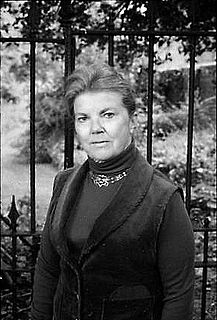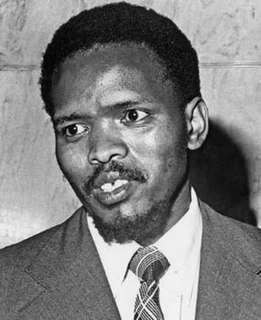A Quote by Bertrand Russell
Hegel's philosophy is so odd that one would not have expected him to be able to get sane men to accept it, but he did. He set it out with so much obscurity that people thought it must be profound. It can quite easily be expounded lucidly in words of one syllable, but then its absurdity becomes obvious.
Related Quotes
When you look back on a historical period of music, it seems so obvious to you what the characteristics of it are, but they're not obvious at the time. So, when I look back at my own work, I could easily write a very convincing sort of account of it that made it look like I had planned it all out from day one and that this led logically to that and then I did this and then that followed quite naturally from that. But that's not how it felt.
Unlike me, Renee was not shy; she was a real people-pleaser. She worried way too much what people thought of her, wore her heart on her sleeve, expected too much from people, and got hurt too easily. She kept other people's secrets like a champ, but told her own too fast. She expected the world not to cheat her and was always surprised when it did.
If the ability to tell right from wrong should turn out to have anything to do with the ability to think, then we must be able to "demand" its exercise from every sane person, no matter how erudite or ignorant, intelligent or stupid, he may happen to be. Kant in this respect almost alone among the philosophers was much bothered by the common opinion that philosophy is only for the few, precisely because of its moral implications.
Protestantism, of course, is much more explicitly divided into different traditions - the Pentecostals, the Anglicans. But there is the main tradition of Protestantism that comes out of the Reformation and that produced people like Kant and Hegel and so on, who are not normally thought of as being people writing in a theological tradition, although Hegel, of course, wrote theology his whole life.
The handkerchief dabbed at my forehead. 'Ouch! You'll have a fine-looking bruise tomorrow.' 'Then you'll be able to distinguish me from Rose.' The handkerchief paused. 'I could tell you apart from the beginning. You're quite different to each other, you know.' Perhaps he could tell, in the obvious ways. The odd one was Rose; the other odd one was Briony.
You may think it odd that there were three men to look after one tiny station, but the people who ran the railway knew that if you left two men together in a lonely place they would quarrel, but if you left three men, two of them could always grumble to each other about the third, and then they would be quite happy.
Ever since men became capable of free speculation, their actions, in innumerable important respects, have depended upon their theories as to the world and human life, as to what is good and what is evil. This is true in the present day as at any former time. To understand an age or a nation, we must understand its philosophy, and to understand its philosophy we must ourselves be in some degree philosophers. There is here a reciprocal causation: the circumstances of men s lives do much to determine their philosophy, but, conversely, their philosophy does much to determine their circumstances.
When people ask me what philosophy is, I say philosophy is what you do when
you don't know what the right questions are yet. Once you get the questions
right, then you go answer them, and that's typically not philosophy, that's
one science or another. Anywhere in life where you find that people aren't
quite sure what the right questions to ask are, what they're doing, then,
is philosophy.

































